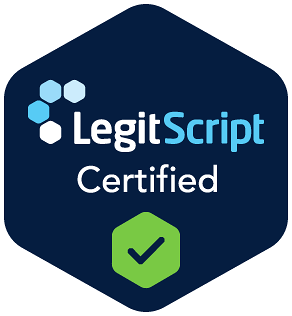Have you ever watched the movie "Limitless" and wondered if such a mind-expanding drug could exist in reality? The idea of a pill that can unlock the full potential of the human brain, enhancing cognitive abilities to superhuman levels, is undeniably intriguing. But is there any truth to this fictional concept? In this blog post, we'll dive into the world of cognitive-enhancing drugs, exploring the science, ethics, and potential of such substances in real life.
The Fictional Promise of NZT-48
In the movie "Limitless," the protagonist, Eddie Morra, stumbles upon a mysterious drug called NZT-48, which gives him extraordinary mental capabilities. Suddenly, he can recall every piece of information he has ever encountered, solve complex problems effortlessly, and master new skills within minutes. The drug's portrayal captures the imagination and raises the question: Could such a drug exist in the real world?
Cognitive-Enhancing Drugs: The Reality
In reality, there are drugs known as nootropics or "smart drugs" that claim to enhance cognitive function. However, their effects are far from the miraculous abilities depicted in fiction. Nootropics encompass a wide range of substances, including prescription medications, dietary supplements, and herbal compounds. Some of the most commonly discussed nootropics include:
- Modafinil: A prescription medication used to treat sleep disorders like narcolepsy, modafinil has been touted for its ability to promote wakefulness and enhance focus and alertness.
- Piracetam: One of the first synthetic nootropics developed, piracetam is believed to enhance memory and cognitive function, though its mechanisms of action are not fully understood.
- Caffeine: Widely available and consumed daily by millions, caffeine is a stimulant that temporarily boosts alertness and concentration.
- Omega-3 Fatty Acids: Found in fish oil supplements, omega-3s are believed to support brain health and cognitive function.
- Magnesium L-threonate: A special form of Magnesium, which is believed to enter the brain more effectively and potentially support cognitive function. However, like other cognitive-enhancing substances, its effects require thorough scientific investigation before drawing definitive conclusions.
While some individuals report positive effects from these substances, scientific evidence regarding their efficacy is often limited and inconclusive. The potential benefits of cognitive-enhancing drugs vary from person to person, and many factors, such as genetics and baseline cognitive function, can influence individual responses.
The Ethical Dilemma
The pursuit of cognitive enhancement raises ethical concerns. If a real-life "Limitless" drug were to become available, would it create an uneven playing field, where those who have access to it gain an unfair advantage over others? Would it exacerbate existing social and economic disparities?
Moreover, the long-term effects of cognitive-enhancing drugs on brain health remain largely unknown. Without comprehensive research, we cannot fully understand the risks and potential side effects of these substances.
The Road Ahead: Ethical Use and Scientific Exploration
While we may not have a magic pill like NZT-48 from "Limitless," the quest for cognitive enhancement continues through ethical and scientific channels. Research exploring the potential of nootropics, as well as other strategies like brain training exercises, cognitive therapies, and lifestyle changes, holds promise for improving cognitive function and brain health.
At the heart of this exploration lies the responsibility to use any cognitive-enhancing tools ethically and responsibly. Transparency, informed consent, and adherence to established regulations are crucial in safeguarding the well-being of individuals seeking cognitive improvement.
Conclusion
As of today, there is no real-life "Limitless" drug that can instantly elevate human cognition to superhuman levels. While nootropics and cognitive-enhancing drugs have sparked interest and continue to be studied, they should be approached with caution and skepticism. The pursuit of cognitive enhancement must be grounded in ethical considerations, with a focus on understanding the long-term effects and potential risks associated with these substances.
In our quest for cognitive improvement, let us not forget the power of our own minds. Embracing a healthy lifestyle, engaging in continuous learning, and challenging our brains through meaningful activities can contribute to a fulfilling and mentally sharp life. As science and ethics guide our exploration, we may one day unlock the secrets to enhancing cognitive abilities, not through a magic pill, but through a well-informed and conscientious approach to the boundless potential of the human brain.











